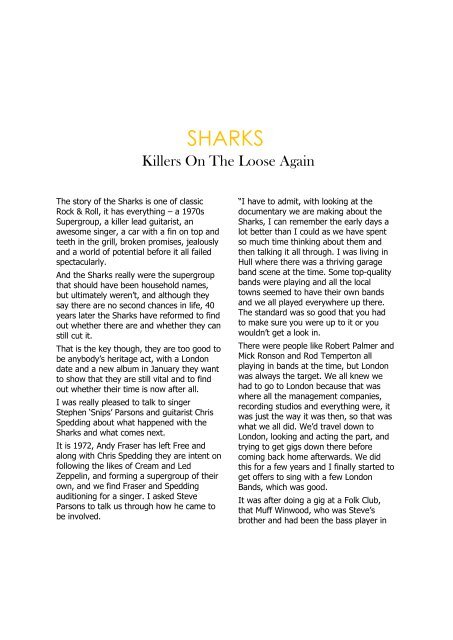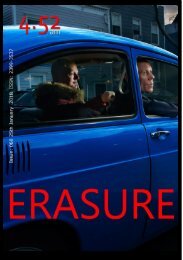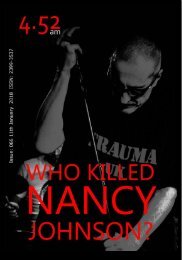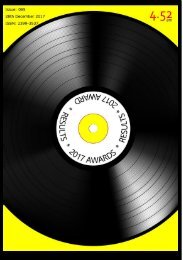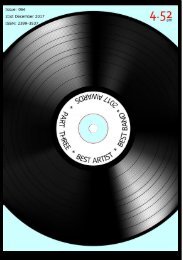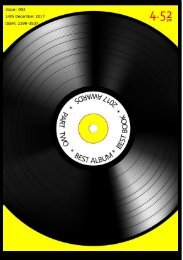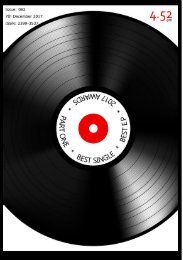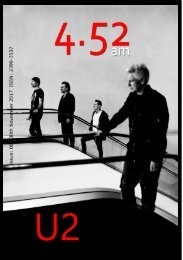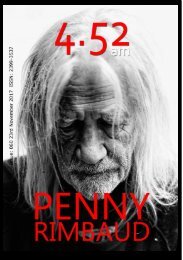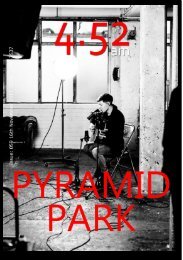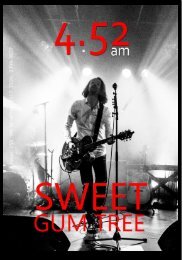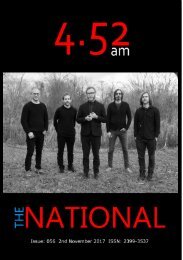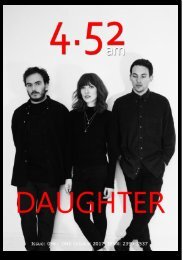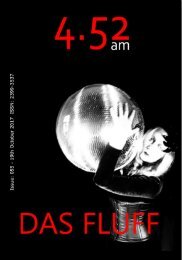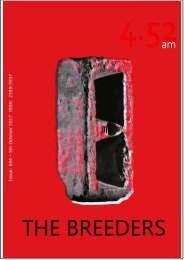4.52am Issue: 008 13th November 2016
Your Free Weekly Guitar and Alternative Music Weekly Magazine from Guitar Quarterly
Your Free Weekly Guitar and Alternative Music Weekly Magazine from Guitar Quarterly
You also want an ePaper? Increase the reach of your titles
YUMPU automatically turns print PDFs into web optimized ePapers that Google loves.
SHARKS<br />
Killers On The Loose Again<br />
The story of the Sharks is one of classic<br />
Rock & Roll, it has everything – a 1970s<br />
Supergroup, a killer lead guitarist, an<br />
awesome singer, a car with a fin on top and<br />
teeth in the grill, broken promises, jealously<br />
and a world of potential before it all failed<br />
spectacularly.<br />
And the Sharks really were the supergroup<br />
that should have been household names,<br />
but ultimately weren’t, and although they<br />
say there are no second chances in life, 40<br />
years later the Sharks have reformed to find<br />
out whether there are and whether they can<br />
still cut it.<br />
That is the key though, they are too good to<br />
be anybody’s heritage act, with a London<br />
date and a new album in January they want<br />
to show that they are still vital and to find<br />
out whether their time is now after all.<br />
I was really pleased to talk to singer<br />
Stephen ‘Snips’ Parsons and guitarist Chris<br />
Spedding about what happened with the<br />
Sharks and what comes next.<br />
It is 1972, Andy Fraser has left Free and<br />
along with Chris Spedding they are intent on<br />
following the likes of Cream and Led<br />
Zeppelin, and forming a supergroup of their<br />
own, and we find Fraser and Spedding<br />
auditioning for a singer. I asked Steve<br />
Parsons to talk us through how he came to<br />
be involved.<br />
“I have to admit, with looking at the<br />
documentary we are making about the<br />
Sharks, I can remember the early days a<br />
lot better than I could as we have spent<br />
so much time thinking about them and<br />
then talking it all through. I was living in<br />
Hull where there was a thriving garage<br />
band scene at the time. Some top-quality<br />
bands were playing and all the local<br />
towns seemed to have their own bands<br />
and we all played everywhere up there.<br />
The standard was so good that you had<br />
to make sure you were up to it or you<br />
wouldn’t get a look in.<br />
There were people like Robert Palmer and<br />
Mick Ronson and Rod Temperton all<br />
playing in bands at the time, but London<br />
was always the target. We all knew we<br />
had to go to London because that was<br />
where all the management companies,<br />
recording studios and everything were, it<br />
was just the way it was then, so that was<br />
what we all did. We’d travel down to<br />
London, looking and acting the part, and<br />
trying to get gigs down there before<br />
coming back home afterwards. We did<br />
this for a few years and I finally started to<br />
get offers to sing with a few London<br />
Bands, which was good.<br />
It was after doing a gig at a Folk Club,<br />
that Muff Winwood, who was Steve’s<br />
brother and had been the bass player in


